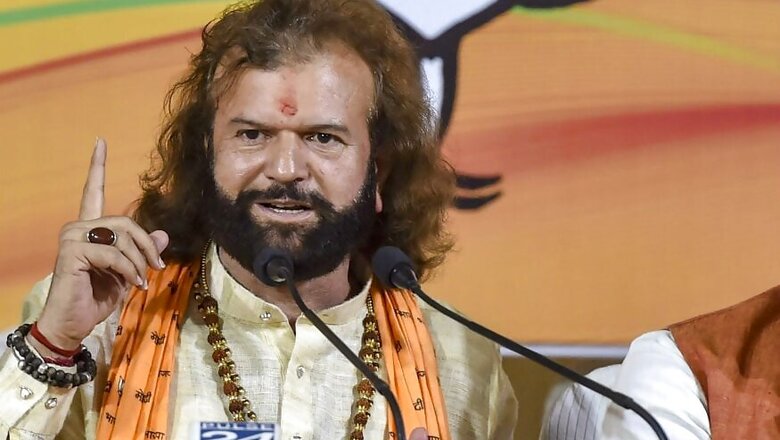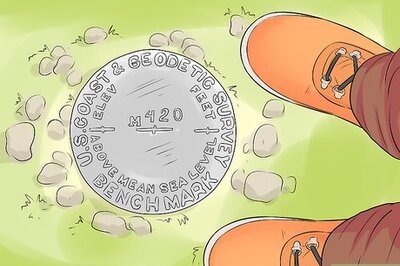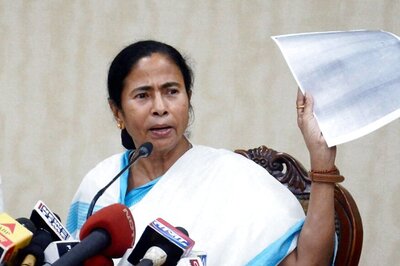
views
New Delhi: Hans Raj Hans, the Dalit BJP MP from North West Delhi, is expecting a solution soon to the issue of demolition of the 500-year-old Ravidas temple.
The move has created a sense of alienation among the Dalit community, and put the Centre in a dilemma over the Supreme Court order and the assertion of identity by the Ravidasis.
According to BJP MP Hans, PM Modi has ordered the constitution of a committee to look into the demands of the community after the demolition of the temple in South Delhi's Tughlaqabad and the subsequent protests.
The representatives of the Ravidasi sect have met civil aviation minister Hardeep Singh Puri, social justice minister Thawar Chand Gehlot and other stakeholders to provide a solution.
“The issue is not just about the Supreme Court order and its execution. It is about aastha (devotion) and samaj (society). The Samaj has vocally expressed what they want… insaaf milega (justice will be done),” he told News18.
The singer-turned-politician has been influenced by Ravidas’ devotional music and writings, especially “Beghampura Sheher Ka Naam,” (Land without Sorrows), and has been singing Ravidas for the past 25 years.
“If there is one voice that is secular, speaks for the marginalized and also reverberates in the articles and clauses of our Constitution, it is Ravidas’,” he said.
Hans added that Ravidas’ works are relevant today and will be so in times to come as the underlying philosophies of his songs question the injustices prevailing in the society. “We need to celebrate Ravidas because caste-based discrimination is man-made and not the work of divine powers. He reminds us we are all equal.”
Ravidas was the Indian mystic poet of the 15th century Bhakti movement who imagined a ‘world without sorrows’. His ideas, philosophy and writings evoked a picture of a ‘just’ society, and with this the saint and social reformer spawned a community of followers – Ravidasis - who are angry today after the Delhi Development Authority (DDA) demolished the 500-year-old temple pursuant to the orders of the apex court.
The court had observed “serious breach” had been committed by Guru Ravidas Jayanti Samaroh Samiti when the samiti did not vacate the forest area as per the past orders. The protests followed though Attorney General KK Venugopal told the Bench that it should direct governments of Punjab, Haryana and Delhi for averting any law and order situation.
Professor, School of Social Sciences, Jawaharlal Nehru University, Surinder S Jodhka said that the sect has a history of assertion of identity and as a result the Dalit community came out on streets. He said that Ravidas is popular among the chamars of SC community and Ravidas is also enshrined in Guru Granth Sahib which is why “Punjabi Dalits were the first ones to identify themselves with him.”
In 1920s, this particular section of Dalit in Punjab was mobilized by the Ad dharam movement under the leadership of Mangoo Ram and their main demand was to get recognition as the separate religious community along with the Sikhs, Hindus, Muslims and Christians. “The idea was to become a quam because if you become a quam you are no longer a caste and scales will change from vertical to horizontal,” said Jodhka.
He added that in 1931 British accepted their demand and the community was enumerated as a separate religion. However after 1932 Poona Pact that was signed between BR Ambedkar and Mahatma Gandhi “the reservations were given to only Hindu Schedule Castes. In order to get benefit of reservations, the Ad Dharmis, who were not listed as Hindus or Sikhs embraced Hinduism to get quota,” said Jodhka.
“This is not a category that census recognizes. In this scenario they have developed a strong sense of identity. They have their own schools, hospitals, diaspora, temples and are assertive,” he said, and added. “The angst exists because the “community feels violated after the demolition of the temple.”



















Comments
0 comment